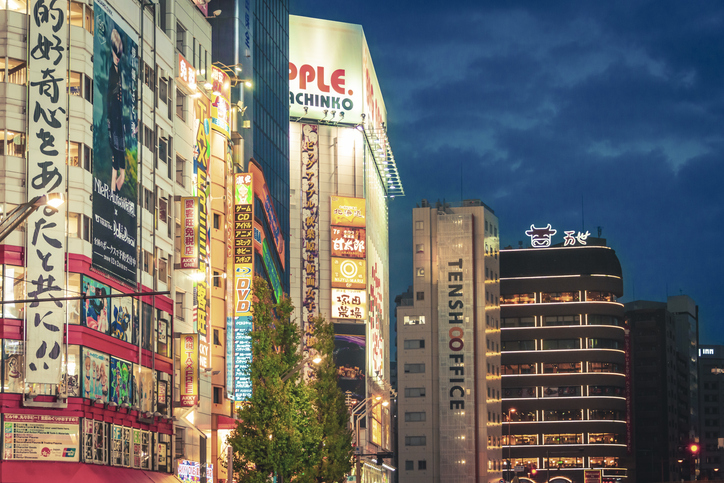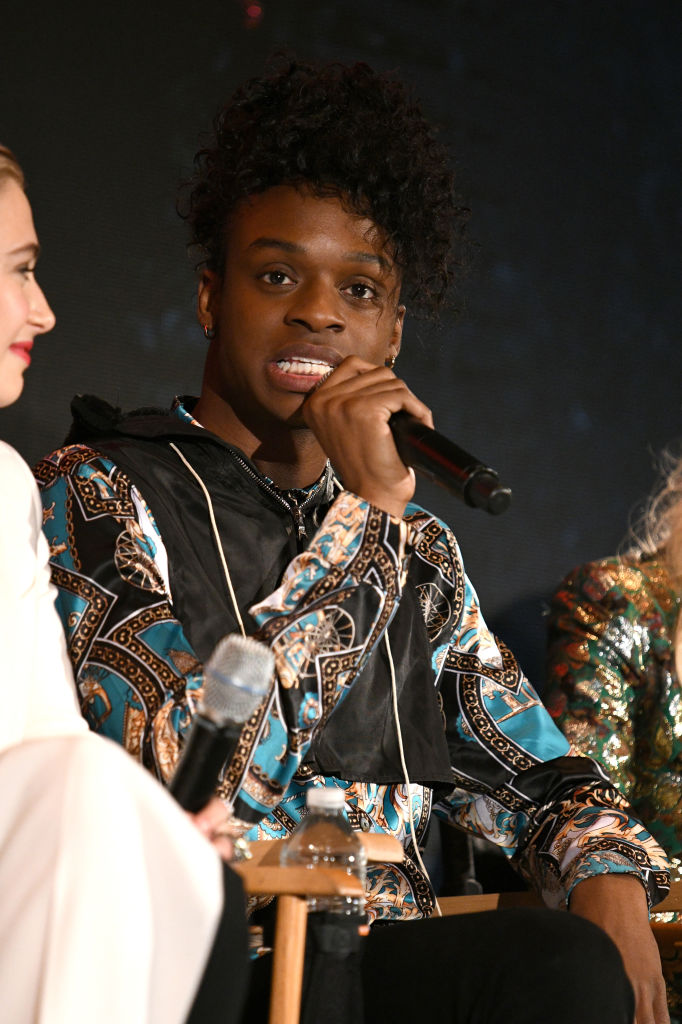
Source: Chiara Salvadori / Getty
My grandfather’s Kung-Fu collection was always bigger than my father’s. My father’s was mostly comprised of collections of DVDs with printed screens across a shiny surface and at least three featurettes on one ROM. My grandfather’s collection were DVDs, VHS tapes, and burned .mov files stored on the desktop downstairs. We watched them together, as were a sort of tradition, on Fridays and Sundays, days I now reserve for spur of the moment anime.
Anime exists as a staple in Black communities. It is trivial to assume that the fascination is recent. Every Black home probably has a fascination with Chinese and Japanese culture — intermingling these two distant ideas of the east into an overall consumption of a fantasy of Asian and Eastern culture. There is a substantial reason that Black-targeted shows like the Boondocks situates Huey Freeman in the eye of the ronin — a wandering Japanese samurai without a master or a home — while characterizing his martial prowess as a Kung-Fu master — which is Chinese in origin. It’s for the same reason most Blaxploitation films can be summarized as sex, corruption, and Kung-Fu with light political commentary all while embracing the Japanese ronin aesthetic of a wandering “Good Man.”
As my grandfather once framed it, Black folk are mesmerized by any culture that is as complete as it isn’t white. He likens that African-Americans are wanderlust for an existence rich in its roots and powerful in its independence. My father didn’t see it as metaphorically. “N-ggas just love fighting.”
The connection to eastern entertainment like Kung-Fu was prevalent enough to inspire the inception of the Wu-Tang Clan following RZA’s EP release to “Ooh I Love You Rakeem,” a shift which leaned into the culture of Kung-Fu action flicks, particularly movies like Shaolin and Wu-Tang, which inspired the name of the Wu-Tang Clan. It was a movement which sought to intertwine the eastern philosophy — typically Taoist — that became embroiled in old movies with the nature of New York Black culture.
Historically, Kung-Fu movies have a very generic format: typically beginning as an underdog story with a protagonist down-trodden and slept on, until a mentor can cultivate residual talent into almost a hardened master; these characters never actually complete their training, or completely gain the power to overcome their opposition. Black boys found a lot to relate to in these pictures because to be born Black is to dedicate yourself to a lifetime of training for a fight you’re woefully unprepared to win. They have weapons and knowledge and access: you have a community and a style: that’s it.
Thus, the truth might be somewhere in the middle between my father’s observations and the philosophy of my grandfather. Your average dubbed Kung-Fu film situates around the idea of balance and the ways western involvement may throw this balance off. The message isn’t always apparent. Flicks like Jet Li’s Fearless tackle a sensitive topic of eastern culture becoming engrossed by a western way of life, which cannot be openly accepted due to the damage its presence signals on a local level. Wuxia and wushu as a genre does not fixate on the impact of a single man upon the world: it focuses on community and the smaller issues and troubles that consume it. In many ways, it inspires the idea of westerns, and how they meditate on the troubles facing some small town on the old frontier. In these stories, the argument is made that the forgotten people who lead cosmically small lives are just as important and worthy of champions as royalty.
mesmerized by any culture that is as complete as it isn’t white.
Black men’s relationship with Kung-Fu inspired a lot of discussion on the nature of these martial arts movies and eastern philosophy in Austin Crute’s portrayal of Wesley Fists, a Black gay ronin and kung-fu flick aficionado on Netflix’s Daybreak. Wesley’s journey investigates Black men’s attachment to Kung-Fu movies as both the means of socio-economics, but also as a necessary escape from the nature of Black identity in the hostile environment of the hood. Black men couldn’t afford to go to the movies, but they could afford to watch those action movies for entertainment and absorb the residual lessons and virtues positioned as a sharp contrast to what they saw daily.

Source: Bryan Bedder / Getty
Austin Crute’s Wesley found Kung-Fu while living in the hood before his family up and moved to suburbia. Still, the lesson was informational enough for him, an athletic Black gay boy, to challenge the ways he thought when he, honestly, wasn’t doing his best as a person. His discussion with Kung-Fu, to me, spoke worlds about the things Black boys have wrestled with forever; the constant challenge to humble an aggression when the need for it is so prevalent. Compounded with a character like Wesley — gay in a world that will undoubtedly have a lot to say about it — he has to work backward and present a forward of aggression while drawn to the feminine. It’s a generational enchantment within Black men — the back and fourth mesmerization with the want to fight and the desire to love — that has destroyed enough Black men to warrant an issue; hell, it was also a topic RZA himself knocks about in almost all of his work. Ironically, it is also reflected in the very Daoist principles of wuxia and wushu, the genres of Kung-Fu.
I haven’t touched Kung-Fu movies since my father passed. Wu-Tang’s biographical tv series, Wu-Tang: An American Saga, has made it harder to ignore the long-standing history Black men have with eastern culture. My passions lean more in the direction of anime than Kung-Fu. It is a passion instilled by my father when revisiting his older genre of anime from the first two or three seasons of Dragon Ball, dubbed on VHS in the same wooden cabinet he, ironically, also kept his porn in (A cabinet I believe has gone untouched since his death).
Most anime –a particularly Japanese media– clearly draws a lot from Kung-Fu action movies. Whether they’re all inadvertently sharing on some east Asian principles or shared ancestral narrative, much of what I have seen reminds me quite clearly of wuxia action. Some anime, like Naruto, are unabashed in their inspirations with characters like Rock Lee drawing as a union between Bruce Lee’s Enter the Dragon and Jackie Chan (specifically the Drunken Master). So, I can appreciate the clear and linear path opened for me towards the genre.
Likewise, I can see the connections that are inspired there. The Shōnen genre of manga, grandfathered by Dragon Ball’s influence and a direct descendant from the epic poem, Journey to the West, has always been clear about who it is targeting in its Japanese roots. However, at the same time, shōnen anime and its penchant for swift and poignant action draws its choreography from the aggressive elegance of Kung-Fu flicks: the back-and-forth dance with true potential, the greatness of the self and the prosperity hidden within community.
















